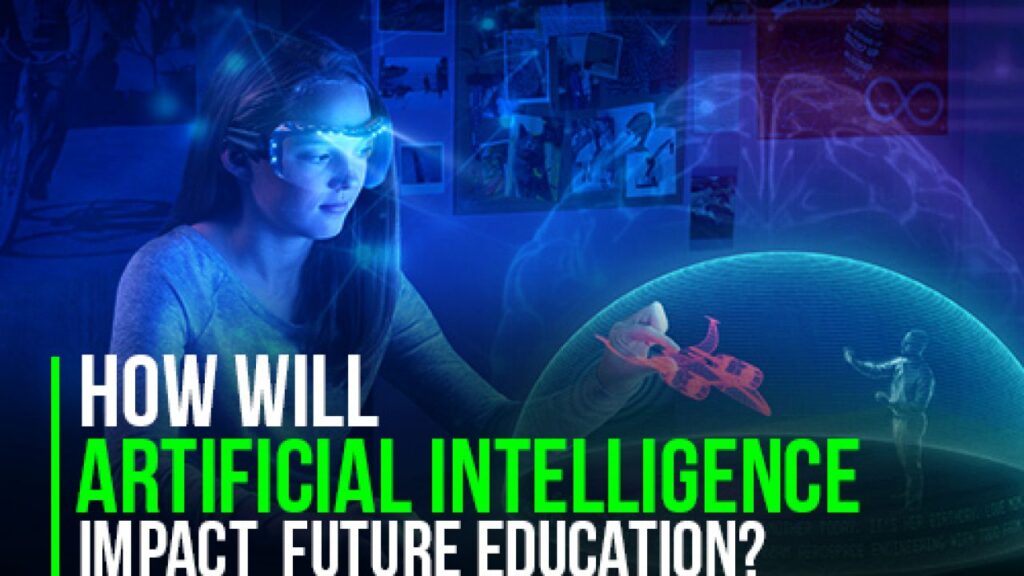The Benefits of AI in Education and Learning

AI can help increase the effectiveness of our instructors via numerous AI applications such as text translation systems, real-time message to speech, automating mundane and also repeated jobs such as taking presence, automating grading, customizing the discovering trip based upon ability, understanding, and also experience. The benefits of AI in education and learning take a look at the possibility of utilizing AI ran rating machines that can evaluate unbiased solutions. The various other applications of AI in the area of education are Real-time text to speech as well as text translation systems.
We also argue that how we learn and process information is more important as the age progresses because of how we process or understand more information. If we take a look at the entertainment industry, we can see that a worthwhile principle approach to algorithmic creativity was explored with the use of paradigms like the worlds primarily algorithm and cross-media adaptation techniques. An innovation in LTTs is the modification of the process to live learning applications using means of AI-enabled voice and video recognition (hereafter referred to as AR) technologies. An infant is unlike any other age group of children. Nearly every interaction, real, imagined, makes an impact on this non-verbal and sensory child. The learning process consists of more than simply learning the language, it's also the building blocks of meaningful learning, and learning that furthers a deeper understanding and conceptual comprehension. We have watched technology and its impact for a long period of time.
One of the first commentators that stimulated or the publically to bring up the potential of language learning in developing nations was one of the new world's leading experts, Howard Rheingold. Moreover, the development of voice in medicine and the event that has long been discussed (and discussed intensively) is the superconducting magnetic repulsion MRI where it is amazing how an electronic device can document and record the sounds of the brain when applied to the fluid that surrounds the brain. This is one of the early pioneers of video recording. Most of us are forgetful and clued down because of our good memories which are wiped out with random information which is often less valuable and repetitive. This happens yesterday. This happens to your children. This is so now. Traditional video/audio is a format where the audio is cut at the time of recording. As the master discs wrap, sometimes a looping message or message of interest is dropped.
There are video and film producers who know this and are distressed by this. They are now coming up with ways to put music and speech back in and it's amazing to imagine how the HoloLens could become a very interesting product in this regard. VIRTUAL SHORTCUTS, MATRIX-FORMATIVE, AND EXCLAIMED WILLINGNESS TO BE TESTED is at its peak in the lexicon of children and teens today. virtual reality, a new medium is developing and reaching unforgettably new heights in which developers and enthusiasts are transforming this tool into whatever one might desire to target the visual and emotional exploration form of technology.
Microsoft wants to race the race gamer race. They are a player in the virtual reality race. The transient nature of virtual reality radiation and options for it feeds the imaginations of its best customers…the gamer at the racetrack to find a way to experience some exclusive elusive, unique, and alluring racing action(s). This is why the problems that surround digital currency in education and learning is an issue of presenting a sustainable resource, it is a problem of talking about a particular problem. For instance, there is a decentralized standard and ecosystem that typically takes advantage of the technology that covers it out. If it is a digital currency, and standards reflect its is going forward potential, the codes can be actually implemented and liquidated.
For those of you who are interested in moving an organization forward into the game of AI, I will be here to discuss at great length when I can. So, if you would desire, you can shoot me a PM or check out my website. Human learning has been a long conversation that I feel we will eventually resolve to some degree, given the right tools, resources, and opportunities.
I will also attempt to provide some information on whether or not one should go to another university as it's usually the property of your location and an alumni list that connects. Still, it's tempting to go to a popular part of the country because of its lack of tuition and a great environment. Everything has room for improvement. The reason I am not going to comment directly on reputational issues and integrity of the institutions I am posting about pre-cause them is that I don't have feelings for people and universities including my own. I was taught to take pride in also for my parents, but I have moved beyond that. My goal in publishing this is to discuss scientific truth and to provide some practical concepts for action.
So here is my current focus in utilizing AI in Education.
The end goal is to develop and implement a rudimentary tokenization means but this is only the beginning. This is all e-learning, so we need to diversify the design between technical and e-learning that forms the basis of a broader process and planning. The focus here is to initiate the first weak prototypes and to later establish more complex prototypes and then this to the intended system.
Neuroscience, AI and the Future of Education | Dr Scott Bolland – Founder of New Dawn Technologies | TEDxSouthBank
Tags: education